 |
| | 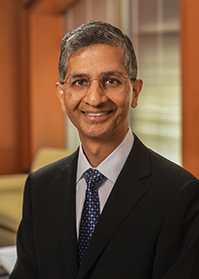 | Vikas P. Sukhatme, MD, ScD |
We are living at a unique time in biomedical history, with unparalleled opportunities to advance biomedical knowledge and translate it to the clinic. Seizing these opportunities requires a relentless focus on connectivity—across missions, departments, specialties, and institutions. An outstanding example is the new NIH-funded research center at Emory, Georgia Tech, and Children’s Healthcare of Atlanta that will assist inventors across the U.S. in developing and translating microelectronics-based point-of-care technologies for patient care. Led by PIs Wilbur Lam (pediatrics, biomedical engineering), Greg Martin (medicine) and Oliver Brand, the Center will help inventors define their clinical needs, conduct clinical validation, and refine their technology, directly addressing barriers with the objective of accelerating the path to clinical adoption.
"In the last several decades, the introduction of point-of-care diagnostic capabilities has enabled rapid and timely clinical evaluation in the physician’s office, ambulances, homes, in the field, or in hospitals, and has the potential to significantly impact health care delivery," says Martin.
"The field of microfluidics is also finding increasing applications for blood-based diagnostics, but their clinical use and success has been less than expected, due primarily to clinician concerns about accuracy, usability, cost and reimbursement, as well as regulatory hurdles," notes Lam. "We think the timing is ripe for a center dedicated to developing microsystem-engineered point-of-care technologies that address barriers to clinical adoption at an early stage, before the technology goes to market."
Emory is well positioned for scientific breakthroughs like these. President Sterk and Provost McBride recently shared One Emory: Engaged for Impact, a strategic framework to solidify Emory’s reputation as a leading research university. Woodruff Health Sciences Center also has established a strategic plan and priorities to shape our future in health sciences. On the basis of this strategic direction and strong foundational support, SOM leaders are now further defining what it means to be a leader in biomedical research. Achieving our vision of eminence will require the commitment of our entire faculty and staff, with our research stakeholders providing the expertise and ideas to drive us forward.
To that end, nearly 200 researchers across fundamental sciences, translational and clinical sciences, and population research and data sciences were invited to attend brainstorming sessions in September. The teams were challenged to reimagine medicine and bring forward their boldest ideas. In the coming months, we will work to prioritize these ideas and map our path forward, and we are committed to keeping you informed along the way. In the meantime, I encourage you to send your ideas, feedback and success stories to OfficeofSOMDean@emory.edu. | |
| |
|  | Annual Gifting of Stethoscopes | SOM Alumni Board President, Anna Kuo 89M, welcomed a room full of excited students to the Class of 2022 in July and spoke of the stethoscope as a symbol of their inclusion in the medical community. Sharing her experiences as a practicing pediatrician, she explained what a simple stethoscope means to her and her patients. "The stethoscope is not only functional," said Kuo. "It holds a tremendous amount of meaning. Even for a very young child, this is a symbol of our profession." Following the program, the M1 students received their stethoscopes, which were donated by some of the more than 16,000 SOM alumni, including residents and fellows. | |
| |
| | "History of Teaching Medicine at Emory," now on display at WHSC library, highlights significant achievements and people who have built Emory into a leading medical school. The exhibit is comprised of four sections:
History of Medicine at Emory tells the story of the five medical colleges that would eventually merge to become the Emory School of Medicine.
Teaching of Medicine: Anatomy explores how professors obtained cadavers in early years and the benefits of direct observation in anatomy.
Teaching of Medicine: Cardiology features prominent faculty in cardiology, including J. Willis Hurst, famous cardiologist and President Johnson’s personal physician, and Nanette Wenger, professor emeritus and champion for women’s cardiology.
The Voice of the Medical Student details the Anlage, a School of Medicine student publication from the 1960s-1990s. Featured articles address diversity and inclusion efforts from the Black Student Alliance, student and faculty protests of the Vietnam War, and health issues such as public smoking viewed from a student perspective. | Learn more | |
| |
| 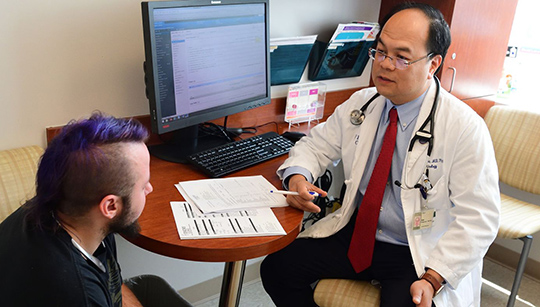 | | Samantha Allen was feeling apprehensive. It was autumn of 2012, and she had recently come out to herself as transgender. As an Emory graduate student, she was looking for assistance on campus. What resources were there? Was Georgia really the best place for a transgender person?
She approached Michael Shutt, then assistant dean for campus life and director of the Office of LGBT Life, who told her that, in addition to a transgender support group that met weekly, Emory was home to a well-known medical expert in transgender health.
Allen set up an appointment with Vin Tangpricha, a professor in the Division of Endocrinology who maintains transgender clinics at Emory University Hospital, Emory University Hospital Midtown, and the Atlanta Veterans Affairs Medical Center.
Tangpricha treats a variety of endocrine conditions in his general practice, but at these clinics he primarily works on the initiation of hormonal therapy as part of gender affirmation treatment. "I have seen about 300 patients at Emory and about 100 at the VA over the past
10 years," he says.
Patients usually come to Tangpricha after being referred by a psychiatrist or mental health counselor who has given a diagnosis of gender dysphoria. Allen, who first saw a counselor at Emory’s Student Health Center, says she was excited just to get in to see Tangpricha, whose schedule is almost always full, and relieved she could finally get started.
"The most distinct impression I had from that meeting is, it’s so refreshing to be in a room with a medical professional who supports you, who makes you feel seen and doesn’t make you feel uncomfortable," Allen says.
With doctors Allen had seen for other issues during the start of her transition, there were awkward moments. "And so to come into the Emory Clinic and have Dr. Tangpricha just see me for who I am and exactly what I need, to make me feel affirmed, that made a huge difference," she says. | Read more in Emory Medicine magazine | |
| |
| 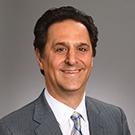 | Douglas Ander (emergency medicine) has been appointed Director of Interprofessional Education (IPE) for the School of Medicine. Ander has led the IPE efforts of the school for the last 11 years. He will continue to work with other programs within the SOM and WHSC to accelerate Emory’s progress in interprofessional education.
| | |
| | |  | Erica Brownfield (internal medicine) was promoted to Associate Dean of Medical Education. As Associate Dean, Brownfield will assume overall responsibility for the MD curriculum in the School of Medicine. She will continue in her role as leader of the Executive Curriculum Committee and will have oversight of our ongoing LCME efforts.
| | |
|
| |
| 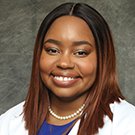 | Christian Freeman, MD Class of 2021, was presented with the Emerging Scholars Award, the highest honor presented to students by the National Medical Association. The award is given to two African American medical students who have demonstrated outstanding academic achievement, leadership, and potential for distinguished contributions to medicine. Freeman was presented with the scholarship at the 2018 NMA 116th Convention Scientific Assembly in Orlando, Florida.
| | |
| | | 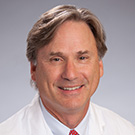 | Jonathan Glass (neurology, pathology) received the Steve Ennis Hope Award from the Muscular Dystrophy Association for his dedication to ALS research and the care of families affected with ALS. He has been an investigator in more than 20 ALS clinical trials and was the principal investigator on the first-in-human trial of neural stem cell transplantation for patients with ALS.
| | |
|
| |
| 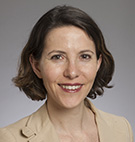 | Abigail Hankin-Wei (emergency medicine) will receive the 2018 Secretary of State Award for Outstanding Volunteerism Abroad for exceptional service to the US Embassy Mozambique and the Mozambican Central Public hospital. Hankin-Wei volunteers as the only trained emergency medicine physician in Mozambique. In addition to providing much-needed specialty care, she has partnered with a local medical school to start the country's first emergency medicine residency program, and has also focused on improving infrastructure, co-writing a grant with local ICU physicians to fund hospital repairs and enhancements. Hankin-Wei will receive the award Nov. 15 in Washington D.C.
| | |
| | | 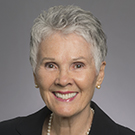 | Sharon Muret-Wagstaff (surgery) was appointed Director of the SOM Experiential Learning Center. Muret-Wagstaff is associate professor and director of high fidelity simulation for the Thalia and Michael Carlos and Alfred A. Davis Center for Surgical Anatomy and Technique (CSAT). She directs the Co-management of Operating Room Emergencies (CORE) Simulation Program for teams of Emory surgeons, anesthesiologists, and nurses. She chairs the Simulation Teaching and Research Initiative of Atlanta (STRIA), is associate editor of Simulation in Healthcare and serves on several scientific review panels.
| | |
|
| |
|
